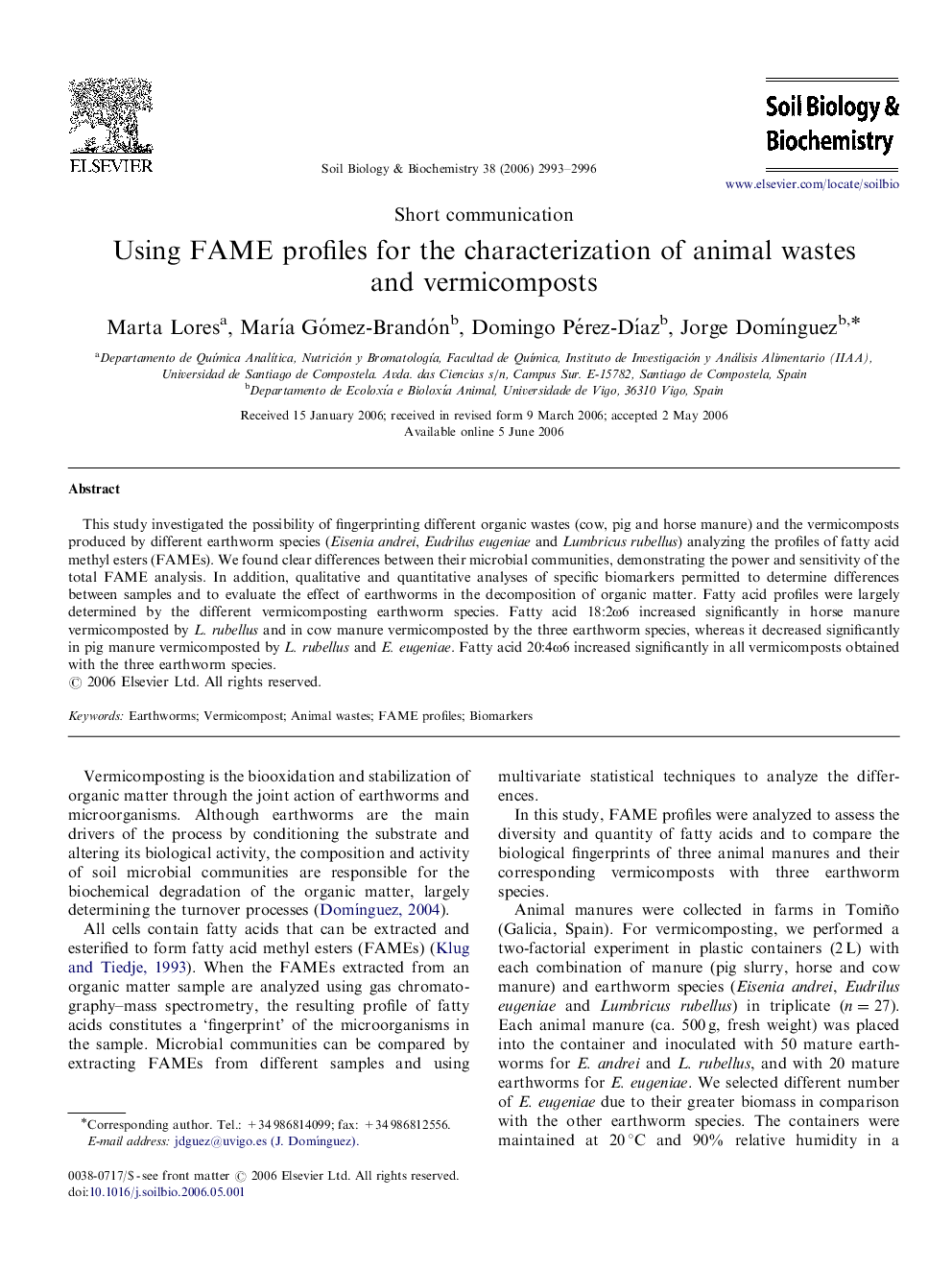| کد مقاله | کد نشریه | سال انتشار | مقاله انگلیسی | نسخه تمام متن |
|---|---|---|---|---|
| 2027158 | 1070090 | 2006 | 4 صفحه PDF | دانلود رایگان |

This study investigated the possibility of fingerprinting different organic wastes (cow, pig and horse manure) and the vermicomposts produced by different earthworm species (Eisenia andrei, Eudrilus eugeniae and Lumbricus rubellus) analyzing the profiles of fatty acid methyl esters (FAMEs). We found clear differences between their microbial communities, demonstrating the power and sensitivity of the total FAME analysis. In addition, qualitative and quantitative analyses of specific biomarkers permitted to determine differences between samples and to evaluate the effect of earthworms in the decomposition of organic matter. Fatty acid profiles were largely determined by the different vermicomposting earthworm species. Fatty acid 18:2ω6 increased significantly in horse manure vermicomposted by L. rubellus and in cow manure vermicomposted by the three earthworm species, whereas it decreased significantly in pig manure vermicomposted by L. rubellus and E. eugeniae. Fatty acid 20:4ω6 increased significantly in all vermicomposts obtained with the three earthworm species.
Journal: Soil Biology and Biochemistry - Volume 38, Issue 9, September 2006, Pages 2993–2996